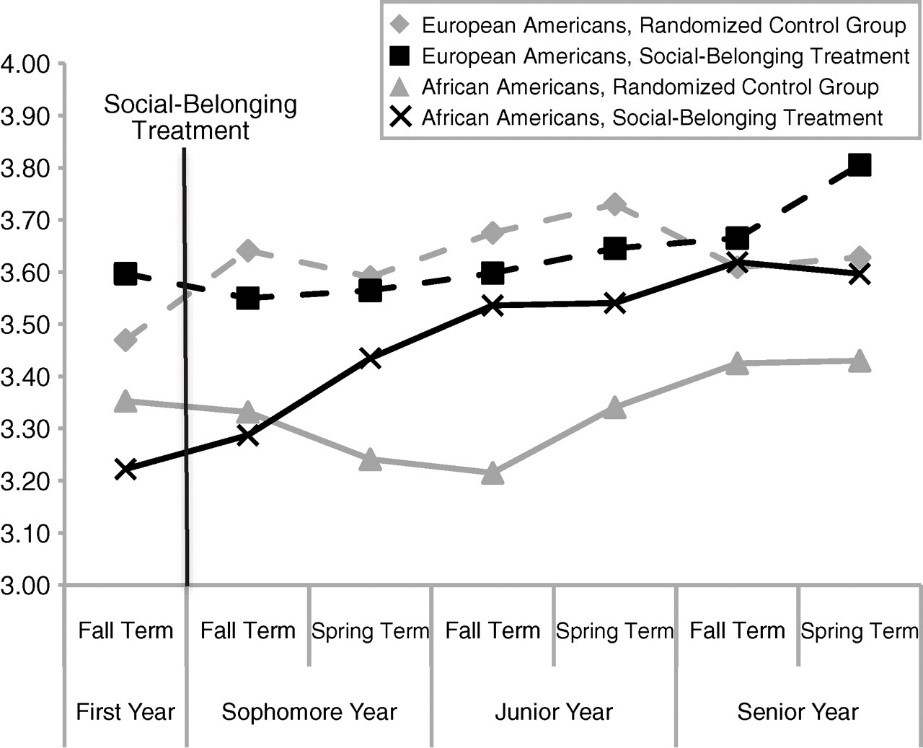
Doctor Greg Walton, Associate Professor of Psychology at Stanford University, visited MIT to talk about seminal research exploring the factors that shape students’ feelings of belonging in demanding academic environments. Some of these factors which can be as simple and affordable as a note on feedback and have a lasting impact on helping students remain in school despite adversity and a feeling that they don’t belong.
“Short exercises and tasks that can take less than an hour can last up to a semester or the entire student’s career,” said Walton. One example was attaching a note to feedback on a student’s work. The note said “I am giving you this feedback because I have high standards and I know you can meet them.” This helped students who face negative stereotypes realize that the teacher wasn’t being biased or unfair but rather that critical feedback was important for growth.
“When we think about education, we think about the obvious: opportunities for learning and motivation. Less obvious are the worries about belonging and fixed intelligence, so how do we break down those negative feelings?”
Walton suggests addressing subjective meanings. Everyone goes into a new situation with uncertainty. They think: Do I belong, will I thrive here. However, that feeling is compounded if you’re a minority or if you feel lonely and isolated. How do we promote a sense of belonging for those who feel they don’t?
We need to convey to students that the feeling of belonging happens over time. Walton and a team of researchers conducted an experiment in social-belonging and how interventions can help: A brief social-belonging intervention improves academic and health outcomes of minority students. The research found that by introducing social-belonging treatments (a narrative that framed social adversity in school as shared and short-lived), minority students had better grade point averages over a four year period (see Figure 1). Not only that, but when contacted years later they also reported a better feeling of happiness and success in their lives.

Figure 1: Raw GPA by student race, experimental condition, and academic term. Means are noncumulative and were combined across cohorts.
As Walton concluded he noted that the “perspectives and identities we have are dangerous, but real.” Adding, “The better we understand the questions facing people the better we can change their inferences.”
Much of Walton’s research investigates psychological processes that contribute to major social problems and how “wise” interventions that target these processes can address such problems and help people flourish, even over long periods of time.